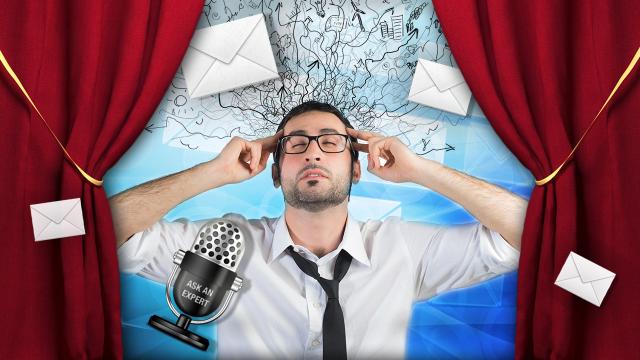Managing the river of email you receive is a fact of life in the contemporary workplace, whether it’s needless memos or unwanted newsletters filling your inbox. Do you strive to read and respond to everything? Or is “inbox zero” an unrealistic goal?
Image adapted from alphaspirit (Shutterstock)
Here to help is Thanh Pham, managing director of the productivity site Asian Efficiency and occasional Lifehacker contributor. His team recently published a guide to reaching inbox zero, that seemingly insurmountable goal, and is well versed in the various methods for managing your inbox.
We often hear people say that they don’t even look at their email in the morning until they accomplish something else. Is that a valid strategy?
For most people, that’s what I would advise. If you can get ONE (important) thing done before you check email, you’ll be ahead of everyone else. Even if email is the primary way to communicate, don’t be a slave to your inbox — that can derail your plans.
Just commit to doing ONE thing before checking email. Even if it’s just 10 minutes — doing it makes sure that you at least are proactive — not reactive.
Do you recommend not using push mail and disabling alerts on mobile devices?
Absolutely. I personally don’t have ANY push notifications on my phone and only a few on my computer.
I prefer the PULL mindset — I will grab the information I need, at the time I want it. So for email, I have all push notifications turned off and I only check email when it is convenient for me. If it’s an emergency, I tell people to call or text me.
If your job is to be responsive (customer support, IT support, etc) then having push notifications is great. However, for most of us this is not necessary.
What can you do when important tasks are being assigned by email, there’s no effective way to delegate, and the volume of work is just too tough to keep up with?
The root of the problem is the volume of emails. We’re all limited to a certain amount of emails we can realistically process every day.
The first thing I would address is the source of all emails. A lot of emails can be eliminated by changing the communication channels and workflows. I’ll give you a couple examples.
1. You can set up “office hours” so people stop emailing you simple questions and they have to come by you to get an answer. They cannot email you anymore for mundane things — they now have to come to your office to get it sorted.
2. When you use an internal chat tool, you can eliminate a lot of email. We use HipChat for our team and it has eliminated 90% of our internal emails. Quick questions can be answered on there instead of email. People can be in the same room to discuss stuff instead of chains of emails.
3. For widespread FYI emails / notifications, use a (company) blog that everyone must follow and check daily. That way you don’t have to email everyone and discussions can be done on the blog post.
4. For important stuff – have people call or text you. No more emails.
The most important thing is that you need to get everyone around you on board with how email is used and what the protocols are. That might mean more meetings, but it will remove a lot of emails so only important ones come through and get addressed right away.
I compulsively read everything that comes in, just to have peace of mind. Is that a problem?.
That’s ultimately what everyone wants out of their inboxes — peace of mind knowing everything is addressed. The challenge is that people tend to check email every five minutes to get this peace of mind, which is a waste of time.
You can get the same benefit by having a system for how you check email. Whether that’s inbox zero, checking email three times a day, whatever — once you have a trusted system, you’ll spend less time on email, have peace of mind, and more time for the truly important things.

Comments
One response to “All About Managing Email Overload”
Another tip – set rules to auto-delete anything you’re only CC’d on. That way you get out of those email discussions you’ve no real interest in. After all, if they’d wanted you involved you’d be in the To address list.
Somewhat related for Outlook on Windows users is the No Reply-All add-in. Stop those spiralling never-ending email discussions in their tracks. Often used with something like “Guys, have a meeting, work it out, send a summary. Your entire address list doesn’t want/need to be involved in this discussion – white or pink, no one other than you two have strong opinions on office toilet roll colour”.
What I like most about these tips is the call to increase useful human interaction and communication. It’s far too easy to just send an email. One office issue is passive-aggressive email delegation… you send an email to someone about a task/project and then reply when asked on the status that you have “emailed and are waiting for a reply”. However simply picking on the phone or walking over may get you the reply much sooner.
Marika
http://www.radiumcrm.com
A lot of the issues we have with email are are result of our own bad habits – sending too many cc’s, checking our inbox every 5 minutes, sending long winded mails instead of picking up the phone to someone…these are just some of the things that add to email overload and stress. We’re an Irish startup, Hiri, on a mission is to fix work email by nudging users into better email habits. Our new client works with Office365 and Exchange – http://www.hiri.com/